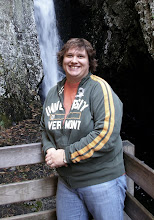For six years, I have been a devoted follower of Lost. I've watched it by myself, with friends, with my Mom (I consider getting her hooked a big achievement!); I've pondered it, discussed it, written about it -- even presented on it at a national conference (Popular Culture Association). And now that it's over I find myself...well, lost...in a way. Not necessarily because I have all this free time and no show to watch (because, believe me, I have plenty), but moreso because of the things I've observed about humanity revolving around this show.
Through the years, I've endured lots of ridicule and harrassment from "non-believers," who say, "It's just a tv show -- what's the big deal?", implying that only an imbecile would get so wrapped up in a tv show that it would affect her world. I've encountered all kinds of reactions to it -- people love it, hate it, claim they "can't be bothered" by it (as they sit down religiously each week to watch it). What I've noticed is that, by and large, admitting to being devoted (as I have just done) and discussing it as though the characters were real makes you at best uncool and at worst emotionally disturbed and unstable. I gather that the "cool" attitude would be to either not watch it at all (because you're too busy, have more important things to do, or are categorically against television), or to watch it but maintain a disaffected, take-it-or-leave-it attitude about it. What's cool about apathy? What's wrong with admitting you like something? What's wrong with admitting that fictional characters and their situations affect our lives, and that that doesn't make us childish or crazy?
I've also encountered people who love to deconstruct the show and expose all its anachronisms and "unrealistic" situations. I suppose if you can pick a show apart and destroy its logic, you can use that as an excuse for watching it religiously? Maybe it makes them feel somehow "smarter" or less vulnerable -- like they haven't been fooled by the show's writers or whatever.
The truth is, our lives revolve around stories. Everyone has a story. Stories feed us and fulfill us, whether they're true or not. So of course we're drawn to complicated, interwoven plots and characters we can identify with. Of course those characters' stories affect us. I think all of this "covering" is just people being afraid to admit how deeply these stories do run. Don't get me wrong -- I'm not suggesting that everyone around the world secretly loves Lost, even if they say they don't -- I'm simply saying that television (and movies, and books, and any form of narrative) directly affects who we are. And admitting that means opening yourself up to participate in a conversation that you're already a part of.
One of my ex-students emailed me today and said, "I can't believe Lost is over. I really can't believe that when it started I was reading Lord of the Flies in your tenth grade class, and now I'm applying for grad school!" That made me think: because of Lost, I've made some lifelong friends, I've had some highly philosophical discussions that have changed the way I saw the world, and I've grown as a person. The show's life has seen me through a very momentous time in my own life -- I have fully engaged with its stories, and those stories have helped me understand myself. And no matter the content of the show (I wasn't particularly thrilled with the ending), I am a richer person for having watched it.
Monday, May 24, 2010
Subscribe to:
Post Comments (Atom)

No comments:
Post a Comment